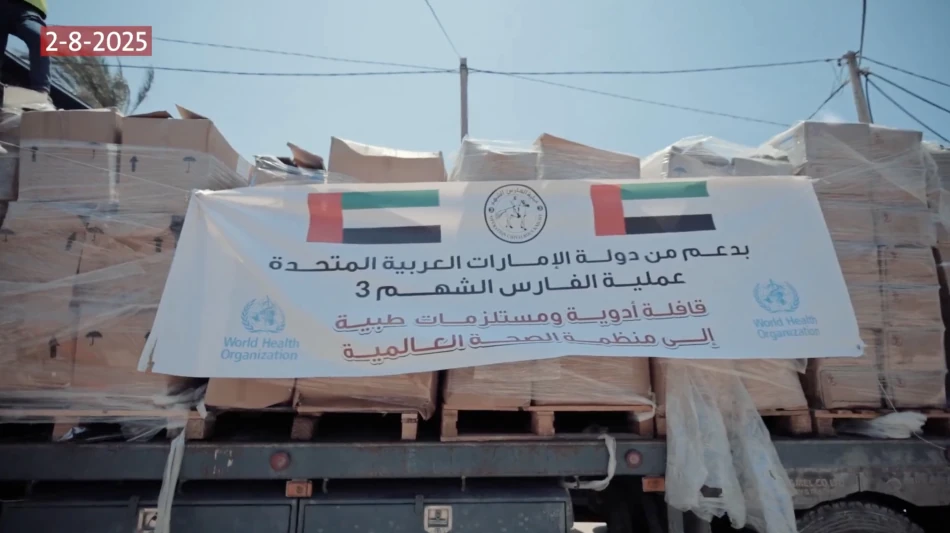
Emirati Aid Convoys Deliver Medical Supplies to Gaza, Bolstering Healthcare Sector
UAE Delivers Critical Medical Aid to Gaza as Healthcare Crisis Deepens
The United Arab Emirates has dispatched new convoys of medicines and medical supplies to Gaza Strip, coordinating with the World Health Organization for distribution to hospitals and medical centers. This latest humanitarian effort underscores the mounting pressure on international actors to address Gaza's collapsing healthcare infrastructure amid severe shortages of essential medical resources.
Strategic Humanitarian Diplomacy in Action
The UAE's continued medical assistance represents more than emergency aid—it reflects a calculated approach to humanitarian diplomacy that has become a cornerstone of Emirati foreign policy. By channeling supplies through the WHO, the UAE ensures legitimacy and broad international acceptance while positioning itself as a responsible regional power capable of bridging political divides for humanitarian purposes.
This coordination mechanism also demonstrates the UAE's sophisticated understanding of international aid delivery, avoiding the complex political sensitivities that direct bilateral assistance might create while ensuring maximum impact on the ground.
Gaza's Healthcare System Under Unprecedented Strain
Critical Supply Shortages
The timing of this aid delivery highlights the acute crisis facing Gaza's medical infrastructure. Healthcare facilities are grappling with severe shortages of basic medicines, surgical supplies, and life-saving equipment needed to treat both trauma patients and those with chronic conditions.
The situation mirrors healthcare collapses seen in other conflict zones, but Gaza's unique geographic constraints—including limited border crossings and restricted access—make supply chain management particularly challenging for international organizations.
Broader Regional Implications
The UAE's humanitarian engagement in Gaza follows a pattern established across the region, from Yemen to Syria, where Emirati aid has served both immediate humanitarian needs and longer-term strategic interests. Unlike previous conflicts where Gulf states primarily provided financial support, the UAE has increasingly emphasized direct, visible humanitarian interventions.
International Response and Coordination Challenges
The reliance on WHO distribution networks reflects the complex logistics of delivering aid in contested territories. This approach has proven effective in other crisis zones, though it often faces delays due to security concerns and administrative procedures.
For international donors and humanitarian organizations, Gaza represents a test case for coordinated response mechanisms. The UAE's systematic approach—combining rapid deployment with established international channels—offers a model that could influence how other regional powers engage in crisis response.
Looking Beyond Immediate Relief
While emergency medical supplies address immediate needs, the sustainability of Gaza's healthcare system requires long-term infrastructure investment and stable supply chains. The UAE's current intervention, though vital, highlights the gap between emergency humanitarian response and the systemic support needed for lasting healthcare resilience.
This aid delivery also signals the UAE's commitment to maintaining its humanitarian profile regardless of shifting regional political dynamics, reinforcing its position as a key player in Middle Eastern crisis management and international humanitarian coordination.
Most Viewed News

 Sara Khaled
Sara Khaled






